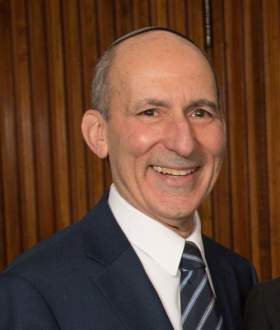
Living in the Present, toward the Future
The American philosopher and psychologist William James (1842-1910) observed that “the great use of life is to spend it for something that outlasts it.” There is no greater exemplar of this ideal than the Biblical Moses. Moses devotes forty years to guiding the Israelites through an extraordinary journey; though he doesn’t enter the promised land, the legacy of Moshe Rabbeinu, Moses our teacher, is the enduring “heritage of the congregation of Jacob” (Deuteronomy 33:4, describing the Torah).
Moses’ leadership was entirely about carrying forward a vision extending beyond himself. When reminded that he would not enter the land of Israel, Moses does not focus on personal disappointment but, rather, on succession. He asks that God appoint a leader “who shall go out before them and come in before them, and who shall take them out and bring them in, so that the Lord’s community may not be like sheep that have no shepherd” (Numbers 27:17).
Moses’ selfless dedication to the mission in which he was engaged is reflected, earlier in the Torah, when two men prophesy in the camp. While Joshua expresses concern, Moses replies: “Are you being zealous for my sake? Would that the entire people of God could be prophets…”(Numbers 11:29). Moses’ greatest aspiration was that the ideals he advanced be realized.
On a material level, the Talmud tells of the encounter of the legendary Honi with a man planting a carob tree that would not yield fruit for seventy years. Honi asks the man whether he anticipates living long enough to benefit from the fruit of the tree. The man replies that, as his ancestors planted for him, so is he planting for his descendants (BT Ta’anit 23a).
We are legatees of those who have planted both spiritually and materially for us. As we complete the cycle of Torah study with the closing chapters of Deuteronomy – and start afresh with the opening of the Book of Genesis -- on Simchat Torah, we are reminded that the Jewish people has a past, present and future grounded in ideals that emanate from Torah; it is a legacy that we live and share with successive generations, in furtherance of a vision of the future. In the words of theologian (Rabbi Dr.) Shai Held, “to live covenantally is to live in the present, toward the future.” To paraphrase words traditionally recited on concluding the public reading of a book of the Torah (hazak, hazak, ve-nithazek), may we find strength and strengthen one another in leading lives of meaning, contributing to the realization of enduring ideals.
Dr. Gil Graff is the Executive Director at BJE.

